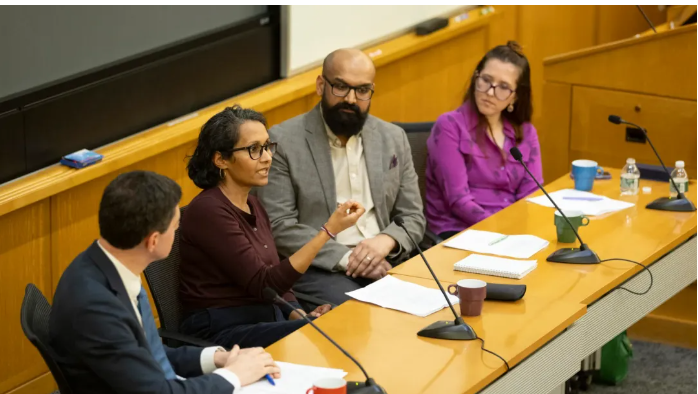
(Image courtesy: The Harvard Gazette)
An event discussing Sri Lanka’s enduring ethnic and economic crisis took place at Harvard University earlier this month, with panellists painting a bleak picture of the path that lies ahead for the island.
Organized by the Lakshmi Mittal Institute and Family South Asia Institute, a panel comprising of three eminent scholars including Kate Cronin-Furman, a human rights expert and political scientist at University College London, human rights advocate PhD student at SOAS Mario Arulthas and Madura Rasaratnam, a senior lecturer in comparative politics at City University of London discussed what lies in store for Sri Lanka. Still reeling from an economic crisis, the panellists spoke of the island’s history of deep political and ethnic divides, including the massacres of tens of thousands of Tamils, and whether systematic change is a reality in the near future.
Titled “Crisis in Sri Lanka", this two-part series, the first which explores the Past, Present, and Future, the event came about after Harvard students protested at the appearance of Sri Lankan President Ranil Wickremesinghe at an earlier event at the university last year.
.jpg)
.jpg) Students protesting at Harvard University last year.
Students protesting at Harvard University last year.
“We weren’t necessarily protesting his speech,” Sai Rajagopal told the Harvard Gazette. “We were protesting the lack of context, the lack of justice, and the lack of true freedom of discourse.”
The three panellists in last week’s event, held at the Center for Government and International Studies, spoke at length about the island’s history of violence and how that shaped Sri Lanka’s current situation.
See the full video of the event below and more from the Harvard Gazette here.
The “Sri Lanka in Crisis” series continues April 10, with a conversation exploring justice, gender, and movement building.
